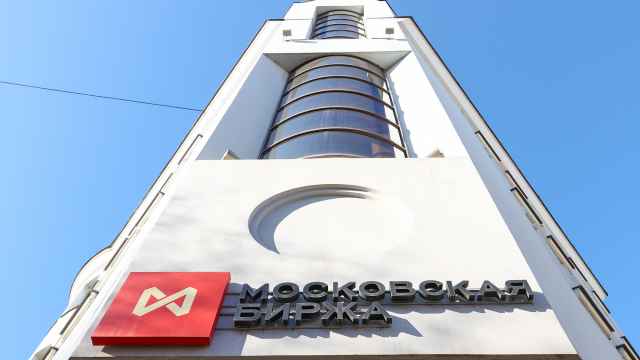The Russian ruble slumped towards two-week lows on Thursday after U.S. senators proposed sanctions on Russia's new sovereign debt.
In an attempt to raise pressure on Russia, particularly in response to Moscow's alleged meddling in U.S. elections, the new bill called for "sanctions with respect to transactions relating to new sovereign debt of the Russian Federation."
Mosow has repeatedly denied any wrongdoing or interfering in the U.S. elections.
The ruble fell to 63.55 versus the dollar shortly after the news of the proposed sanctions, its weakest since June 20, sliding from the levels of around 62.21 it hovered at before the new bill announcement.
Concerns about sanctions on Russian debt have been dominating markets for months but Washington has so far has fallen short of penalties against government debt.
Russian treasury bonds, known as OFZs, are popular among investors around the globe thanks to their lucrative yields. Foreigners now own around 30 percent of Russia's government bonds.
The announcement of new possible sanctions sparked a sell-off in OFZs, sending their prices lower and lifting their yields. Yields in 10-year OFZ bonds jumped to 7.85 percent, their highest since June 20.
"This is a very harsh bill," said Vladimir Miklashevsky, an economist at Danske Bank in Helsinki.
"The risk of sanctions on sovereign debt was the main reason why we were rather moderate when assessing the future of the Russian economy and its financial markets," said Liza Ermolenko, an economist at Barclays in London.
Russia's Finance Ministry declined to comment on the new sanctions bill.
If new U.S. sanctions target only new OFZ issues, their yields may rise by 2 percent and the ruble may weaken by 5 percent, Citi bank analysts said in a note.
The new bill, announced days before U.S. senator Rand Paul is expected to visit Moscow, also envisages sanctions against Russian political figures and oligarchs as well as restrictions on energy investment.
The ruble was also under pressure from market expectations that the Finance Ministry would further increase state purchases of foreign currency for its reserves.
Russian stock indexes were down. The dollar-denominated RTS index was down 2.2 percent to 1,135 points, while the ruble-based MOEX Russian index shed 1.1 percent to 2,289 points.
A Message from The Moscow Times:
Dear readers,
We are facing unprecedented challenges. Russia's Prosecutor General's Office has designated The Moscow Times as an "undesirable" organization, criminalizing our work and putting our staff at risk of prosecution. This follows our earlier unjust labeling as a "foreign agent."
These actions are direct attempts to silence independent journalism in Russia. The authorities claim our work "discredits the decisions of the Russian leadership." We see things differently: we strive to provide accurate, unbiased reporting on Russia.
We, the journalists of The Moscow Times, refuse to be silenced. But to continue our work, we need your help.
Your support, no matter how small, makes a world of difference. If you can, please support us monthly starting from just $2. It's quick to set up, and every contribution makes a significant impact.
By supporting The Moscow Times, you're defending open, independent journalism in the face of repression. Thank you for standing with us.
Remind me later.






